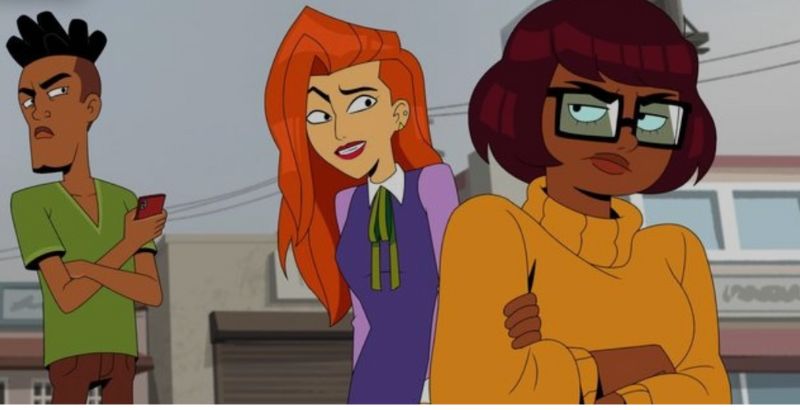
The Velma season finale wraps up the messy plot threads we’ve followed all season long. Velma has finally found her mother, her relationship with Daphne is making strides, and the serial killer is close to being found. What Velma does not find, however, is a way to convince me that it’s worth a second season.
Thematically, these are the most toned-down episodes of Velma. Velma attempts to keep her mother calm as she experiences amnesia from her kidnapping. The shock is hard to keep up with as Velma makes her father, step-mom, Norville, and Daphne engage in a ruse to make Diya feel comfortable. As Episode 9 weaves us in and out of a narrative about keeping things the same, I can’t help but see it as a metaphor for how this show so desperately wants to be different. It wants to give us a Scooby-Doo for the cool, edgy adults who reject their childhood nostalgia. The season ends with the crisis of familial change, familial trauma, social acceptability, queer identity, male privilege, and violence against women. None of these ideas are fleshed out in a meaningful enough manner to feel like anything but pawns fighting against each other.
Episode 10 reveals the truth of the true serial killer and attempts to reset the origins of our favorite meddling kids. This does nothing but put viewers back at the start. The action sequences may be animated well but the characterization of the villains and the way Velma, Daphne, Fred, and Norville interact in this episode doesn’t bring them together. In fact, it sets them further apart than where they started at the beginning of the show. Velma is faced, once again, with her lack of respect for her friends, and her relationships are brushed aside and replaced by her need for approval from her mother. Most of Daphne and Fred’s characterizations are thrown out the window to engage in themes of high school acceptance and popularity. Norville continues to be derailed as a character and is strictly there to be an object of Velma’s desires. There has been no progression, even if the mystery has been solved.
Velma, from beginning to season finale, wasn’t completely regressive but it wasn’t progressive either. Its thesis, if there was one, seems to be that Velma as a character does not deserve friends and there will never be a Mystery gang if she does not get better. The show ends by telling us that she won’t really change, but at least Velma has her mom back. While I am happy to have reached the end, out of morbid curiosity, I am sad about how Velma has failed. Mindy Kaling and Charlie Grandy have engaged in themes and conversations that deliberately undermined the messaging they may have tried to get across. The character designs are beautiful and stylized, but each character lacks depth, forcing my eyes to glaze over every time they speak. I wish I liked this enough to recommend this to someone in good faith, but Velma wraps up with a disappointing narrative, poor execution, and a lackluster ending.
Velma is now streaming on HBO Max.
Velma Season Finale
-
Rating - 2/102/10
TL;DR
I wish I liked this enough to recommend this to someone in good faith, but Velma wraps up with a disappointing narrative, poor execution, and a lackluster ending.






